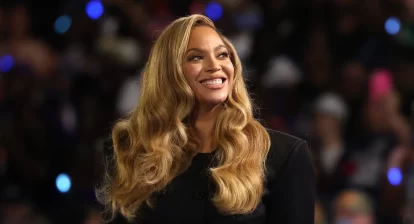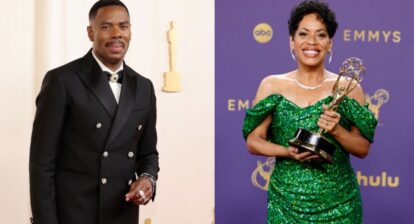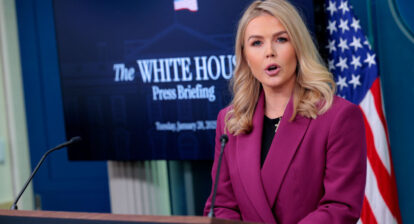
OPINION: A conversation started on Threads centering Issa Rae has led to more conversations about who gets to tell Black stories than are necessary.
Editor’s note: The following article is an op-ed, and the views expressed are the author’s own. Read more opinions on theGrio.
Have you ever found yourself engaged in an interesting cultural conversation where the main point is both interesting and solid but the examples used to make the main point nearly render the conversation moot? I’ve been there (or more accurately, here) several times. In two of those conversations—one that has been going on in various forms for the better part of a week now—Issa Rae was at the center of the universe.
In 2018, Pulitzer Prize-winning writer Wesley Morris wrote an article for the New York Times Magazine that started out with a discussion about Issa Rae’s magnum opus—the culturally significant convo starter, “Insecure.” In his piece, “The Morality Wars,” the subhead says, “In 2018, culture is being valued for its moral correctness more than for its quality.” The piece runs through a litany of art and artists where the value we attach to a thing (or person) often supersedes the works associated with them. In the case of Issa Rae and in particular, “Insecure,” Morris didn’t find the show particularly good (or more accurately, thought that it should be better), but found other people super defensive of it because of what it represented and because of the lack of other options in the space.
I remember at the time reading the article and being perplexed because regardless of its need to exist for various representational reasons, the show was actually well-written and well-acted—a stance many, many people took. To me, “Insecure” covered all of the bases in both style and substance, unlike several other options on the table at the time; it felt like he was picking on “Insecure” and just plain wrong. I even wrote an article shortly after providing a much more glaring example of a film that I shan’t name that could only be lauded for what it was supposed to be because the film, based on a very popular book out around that time, was gawdawful.
At the time of Morris’ article, conversations about Issa Rae’s star and who she could become and what she might do outside of the world of “Insecure” were all the rage. We’d come to find out that Rae had a ton up her sleeve—from acting in movies to creating new shows and being a general, all-around, creative-plus to the legacy of Black Hollywood. I’m curious how Morris feels about “Insecure” since the show wrapped as Rae has become part of our cultural consciousness when it comes to Black art and representation on screen. Not to mention she gave us one of the greatest quotes in all of Black History when she said on the Emmy red-carpet in 2017 that she was “rooting for everybody Black.”
It’s 2025 now and Issa Rae has more than proven herself in the world of Black entertainment. So I was struck by a recent conversation happening on Threads, started by (from what I can tell) commentary made by Dr. Jenn M. Jackson, an assistant professor at Syracuse University’s Maxwell School of Citizenship and Public Affairs. Assuming that my timeline is correct, in response to a comment made by a user about people taking the film “One of Them Days”—a hi-jinks buddy film about finding money to make rent over the course of one day starring Keke Palmer and SZA—too seriously, Dr. Jackson quipped that they (Dr. Jackson uses they/them pronouns) not only disliked commentary that disregarded some viewers dislike with films that portray Black women in a certain light, Jackson added that Rae (whose company, Hoorae Media, was a producer on the film) more or less wasn’t of the world being portrayed in the film and thus should stick to the rivers and lakes that she’s used to—middle class Black life. They also questioned Issa’s LA bonafides (and her ability to tell that particular L.A. story), alleging that Issa is really from Maryland. It has started all types of conversation online about who gets to tell what stories.
Let me be clear upfront; I don’t know Dr. Jackson but I think that they and anybody who feels like speaking on anything on social media is entitled to their opinion. Dr. Jackson also pointed out that they are fans of Issa’s work. With that said, their take on Issa Rae on this film in particular strikes me as odd.
I say that because Issa Rae, who is at the center of the critique, didn’t write the screenplay. If the story misrepresents or negatively represents Black women (a conversation always worth having), it seems like the beef is with the screenwriter—Singleton—not Rae. Where Rae is from or the vantage point from which she speaks is almost moot, unless Rae said that this story had to be told in a particular fashion, which hasn’t been said. It’s like Dr. Jackson took aim at Issa because she’s the name with the most cultural cache in the conversation but it also makes the discussion one that is about one thing (Rae and her authority to tell a story she only ensured got made) as opposed to the actual question: does the film lean into negative portrayals of Black women? Where Rae was raised (of which Los Angeles was apart; she lived there for at least enough years for it to be her home base) and how she was raised has nothing to do with this film, to me.
I’m confused about why Issa Rae, who by all accounts hasn’t exactly actively tried to misrepresent herself or where she’s from or what vantage point she speaks from, became the target of a negative critique of a film written by another Black woman simply by being one of several producers. I’ve tried to figure out where I got it wrong. As I said, I don’t know Dr. Jackson so I won’t assume that it’s meant to be personal, but the argument falls flat. I watched “One of The Days,” and while I am one of those people who just view it as a movie that made me laugh—it’s very “Friday”-esque—I can always appreciate how others can’t divorce a film from what it means culturally, even if I don’t see it the same.
But further, I don’t see how Issa could be viewed as misrepresenting any part of the culture, anyway. If there’s one thing I can give Issa credit for it’s that she’s consistently and intentionally tried to provide an avenue for stories we haven’t seen before, that feature us, whether by being an actor, writer or producer. She’s always, as she said, “rooting for everybody Black,” and because she has an actual platform that can put her money where her mouth is, she does it. The ungenerous view of her participation in this film feels unfair. No art is above criticism; this feels like the wrong criticism of this art.
I can acknowledge that all art isn’t for everybody. There are hordes of Black films on Amazon Prime and Tubi that prove that point daily. And there are absolutely filmmakers who have no business telling certain stories; I’m not sure how Issa, though, got in this one.
I often find it curious what angle we (and I’ll include myself in this critique) as people with opinions who have platforms decide to take in conversations. There are definitely Black people who have no business attempting to tell certain stories about our culture because of a lack of experiences or sensitivities. I don’t feel like Issa is one of them, but I also don’t feel like she’s trying to tell stories she doesn’t know. It feels like she’s supporting those who want to tell stories that they know and allowing them the space and platform to do it. How that could be anything less than a win is beyond me; and how that could place her upbringing and cultural awareness up for debate is curious—at least so far.
What I will say is that conversations about Blackness, what constitutes it and who has a right to it are always going to be present and the nuances therein are always going to provide fodder for disagreement and discourse. The conversation about Issa Rae and her art isn’t a bad one since all creatives open themselves up to debate. But much like Morris’ critique of “Insecure” felt like the right idea but the wrong example, critiquing a film representation but aiming that vitriol not at the writer but the most famous person associated with it is misplaced.
Sometimes the topic is right, but the angle is wrong; it’s just one of those days.

Panama Jackson is a columnist at theGrio and host of the award-winning podcast, “Dear Culture” on theGrio Black Podcast Network. He writes very Black things, drinks very brown liquors, and is pretty fly for a light guy. His biggest accomplishment to date coincides with his Blackest accomplishment to date in that he received a phone call from Oprah Winfrey after she read one of his pieces (biggest) but he didn’t answer the phone because the caller ID said “Unknown” (Blackest).
!function(){var g=window;g.googletag=g.googletag||{},g.googletag.cmd=g.googletag.cmd||[],g.googletag.cmd.push(function(){g.googletag.pubads().setTargeting(“has-featured-video”,”true”)})}();




